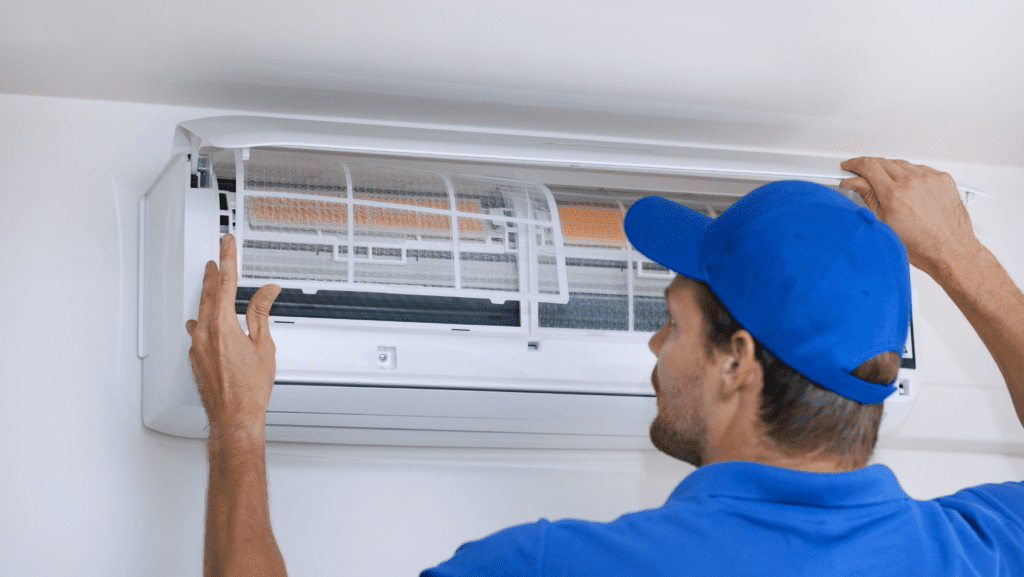Studies suggest that indoor air can get on to be very detrimental over time. Pollutants, dust, smoke, pet dander, and other common substances can cause poor indoor air quality – unless they are filtered out. Because of this, investing in an air filtration system can improve the air quality in your Exeter rental home. Still, there are so many different kinds of air filters and purifiers, all of which have positive and negative aspects. The majority of air filtering systems work as they claim, at the same time others may do little more than move air around your home. To ascertain that you bring on an air filtration system that is worth the investment, it is vital to learn a little as far as it concerns what options are available and what to distinguish as you shop.
Benefits of Air Filters and Purifiers
When used accurately, air filters and purifiers have many benefits. A splendid air filter can help take those common indoor pollutants and toxins, clean pet dander, smoke, and dust out of the air, reduce the symptoms of respiratory problems, and make your home smell cleaner. These benefits are great for someone with asthma or other related chronic illnesses. Improved indoor air quality can help minimize eye, nose, and throat irritation, headaches, and allergy symptoms. Particular air purifiers can even help kill bacteria that cause the common cold and the flu.
Types of Home Air Filters
Home air filters and purifiers come in assorted styles and sizes. These are as follows:
- Standard Air Filters: These fiber, paper, or mesh filters can clean dust and dander particles out of the air. One renowned type of air filter is a high-efficiency particulate air (HEPA) filter, which can trap particulates that other filters may let pass.
- Electrostatic Air Filters: This air filter uses an electrically charged screen or panel to filter particles out of the air. Likewise included in this nature would be ionizer filters, which work by attaching electrically charged ions to common air pollutant particles. This makes the particles heavy, after which they just drop out of the air.
- Activated Carbon Filters: Though this type of filter is not normally used on smaller home air purifiers, this type of filter operates with activated carbon to eliminate gases and odors from the air. Still, activated carbon filters do not clean up carbon monoxide and wear out right away.
- UV Light Filter: These air purifiers use UV light to help remove biological pollutants like mold and bacteria. But on the flip side, UV light filters do not discard dust or dander particles like the other air filters.
Choosing a Filter or Air Purifier
The type of air filter you use will largely depend on what kind of filtering best meets your needs. It is, in addition, beneficial to research the air quality index in your area, which can let you know exactly how much of a problem certain air pollutants are where you live. A top-quality air filter will help take away some of the harmful particles in your indoor air. Except no filter can remove them all. For individuals with allergies or respiratory conditions, even really small improvements in indoor air quality can make a huge difference. But, to do so, you will need to ascertain you have well-fitted air filters for each room.
You, in all likelihood, may be able to install an air purifier or a better-quality filter in your existing HVAC system. This may be the simplest option depending on your air filter type. Ascertain to work with your property manager to make this upgrade. At any rate, if these types of filters don’t meet your indoor air quality needs, you may need to procure one or more additional air purifier units to attain your favored level of air quality. Freestanding air purifiers can help clean the air in bedrooms or other enclosed spaces. Still, smaller units normally are only suitable in small rooms. To clean the air in rather larger or more open areas of your home, you may have to invest in larger, more expensive filtering machines.
The filtration models recommended by experts can cost anywhere between $200 and $900 per unit. And put to mind the cost of the filters! All air purifiers and filtering machines will have filters that demand to be replaced or cleaned frequently. Some of these replacement filters can be pretty extravagant. It is a better idea to check the prices of both the air filtering unit and the replacement filters preparatory to your deciding to buy.
For most renters, investing in a high-grade air filter or purifier is the most ideal way to enhance indoor air quality and personal health. And if you act upon your research first, you’ll be able to ascertain exactly the size and type of air filter you need.












